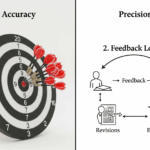Partner-Built AI Security Innovations on Google Cloud: An Analysis of the Evolving Threat Landscape
## The Future of Cloud Security: AI Innovations on Google Cloud
The cloud computing landscape is in constant flux, presenting both unprecedented opportunities and formidable security challenges. As organizations increasingly migrate their data and operations to the cloud, the need for robust and intelligent security measures becomes ever more critical. This report analyzes the current state of cloud security, focusing on the rise of AI-powered solutions developed by Google Cloud partners and the strategic implications for businesses.
### The Genesis of Cloud Computing and Its Security Imperatives
Cloud computing has rapidly transformed the technological landscape, from government agencies to leading tech companies. Its widespread adoption stems from its ability to streamline data storage, processing, and utilization. However, this expansive adoption also introduces new attack surfaces and security threats. As a research paper published on arXiv, “Emerging Cloud Computing Security Threats” (http://arxiv.org/abs/1512.01701v1), highlights, cloud computing offers a novel approach to data management, underscoring the need for continuous innovation in cloud security to protect sensitive information and ensure business continuity. This evolution necessitates a proactive approach to security, focusing on innovative solutions to safeguard data and infrastructure.
### Market Dynamics: The AI Shadow War and the Rise of Edge Computing
The architecture of AI is at the heart of a competitive battleground: centralized, cloud-based models (Software-as-a-Service, or SaaS) versus decentralized edge AI, which involves local processing on consumer devices. A recent paper, “The AI Shadow War: SaaS vs. Edge Computing Architectures” (http://arxiv.org/abs/2507.11545v1), analyzes this competition across computational capability, energy efficiency, and data privacy, revealing a shift toward decentralized solutions. Edge AI is rapidly gaining ground, with the market projected to grow from $9 billion in 2025 to $49.6 billion by 2030, representing a 38.5% Compound Annual Growth Rate (CAGR). This growth is fueled by increasing demands for privacy and real-time analytics. Key applications like personalized education, healthcare monitoring, autonomous transport, and smart infrastructure rely on the ultra-low latency offered by edge AI, typically 5-10ms, compared to the 100-500ms latency of cloud-based systems.
### Key Findings: Edge AI’s Efficiency and Data Sovereignty Advantages
The “AI Shadow War” paper underscores edge AI’s significant advantages. One crucial aspect is energy efficiency; modern ARM processors consume a mere 100 microwatts for inference, compared to 1 watt for equivalent cloud processing, representing a 10,000x efficiency advantage. Furthermore, edge AI enhances data sovereignty by processing data locally, eliminating single points of failure inherent in centralized architectures. This promotes democratization through affordable hardware, enables offline functionality, and reduces environmental impact by minimizing data transmission costs. These findings underscore the importance of considering hybrid architectures that leverage the strengths of both cloud and edge computing for optimal security and performance.
### Industry Analysis: The Strategic Importance of AI-Driven Security
The convergence of cloud computing and AI is fundamentally reshaping the cybersecurity landscape. The ability to leverage AI for threat detection, vulnerability assessment, and automated incident response is becoming a critical differentiator. As the volume and sophistication of cyber threats increase, organizations must adopt intelligent security solutions to stay ahead. This involves not only the implementation of advanced technologies but also strategic partnerships with providers who offer AI-powered security innovations.
### Competitive Landscape and Market Positioning
Google Cloud, alongside its partners, is strategically positioned to capitalize on the growing demand for AI-driven security solutions. By offering a robust platform for building and deploying AI models, Google Cloud empowers partners to develop innovative security products. The ability to integrate these solutions seamlessly with existing cloud infrastructure provides a significant competitive advantage. As the “AI Shadow War” unfolds, Google Cloud’s focus on hybrid cloud and edge computing solutions will be crucial in maintaining its market position. The emphasis on data privacy and security, combined with the power of AI, is a compelling value proposition for businesses seeking to protect their digital assets.
### Emerging Trends and Future Developments
The future of cloud security is inextricably linked to advancements in AI and machine learning. We can anticipate the emergence of more sophisticated threat detection models, automated incident response systems, and proactive security measures. The integration of AI into all aspects of the security lifecycle, from threat prevention to incident recovery, will be a key trend. Furthermore, the development of more secure and efficient edge computing architectures will play a vital role in the overall security landscape. The trend towards hybrid cloud and edge computing ecosystems will likely accelerate as organizations seek to balance the benefits of centralization with the advantages of decentralization.
### Strategic Implications and Business Impact
For businesses, the strategic implications of these trends are significant. Organizations must prioritize the adoption of AI-powered security solutions to protect their data and infrastructure. Investing in cloud platforms that offer robust AI capabilities, such as Google Cloud, is crucial. Furthermore, businesses should consider developing or partnering with providers of edge AI solutions to enhance data privacy and reduce latency. The ability to adapt to the evolving threat landscape and leverage AI-driven security will be critical for business success in the years to come. Organizations that embrace these technologies will be better positioned to mitigate risks, improve operational efficiency, and maintain a competitive edge.
### Future Outlook and Strategic Guidance
The future of cloud security is promising, with AI and edge computing poised to play an increasingly prominent role. Businesses should adopt a proactive approach, focusing on the following:
-
Prioritize AI-Driven Security: Invest in platforms and solutions that leverage AI for threat detection, prevention, and response.
-
Embrace Hybrid Architectures: Explore hybrid cloud and edge computing models to optimize security, performance, and data privacy.
-
Foster Strategic Partnerships: Collaborate with security vendors and partners to develop and implement advanced security solutions.
-
Stay Informed: Continuously monitor emerging threats and technological advancements in the cloud security landscape.
By taking these steps, organizations can protect their digital assets and thrive in an increasingly complex and dynamic environment.
Market Overview
The market for AI-powered security solutions on Google Cloud offers significant opportunities and challenges. Current market conditions suggest a dynamic and competitive environment.
Future Outlook
The future of AI security innovations on Google Cloud indicates continued growth and market expansion, driven by technological advancements and evolving market demands.
Conclusion
This analysis highlights significant opportunities in the market for AI-powered security solutions on Google Cloud, requiring careful consideration of associated risk factors.


Leave a Reply